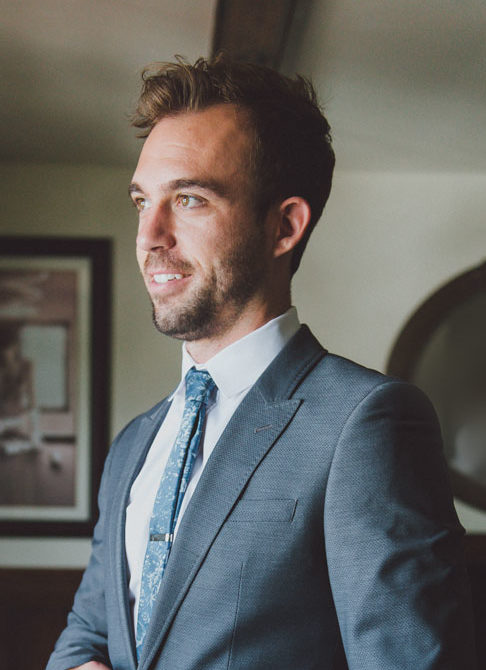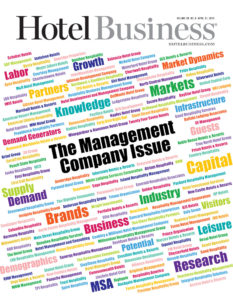 Now more than ever, hoteliers are hearing about how to cater to younger guests. The latest technologies, immersive opportunities and impressive amenities may be all the rage, but sometimes what a guest wants—no matter his or her age—is a comfortable, memorable hotel experience.
Now more than ever, hoteliers are hearing about how to cater to younger guests. The latest technologies, immersive opportunities and impressive amenities may be all the rage, but sometimes what a guest wants—no matter his or her age—is a comfortable, memorable hotel experience.
No stranger to this is a millennial himself, Cameron Lamming, president/COO at RAR Hospitality. Lamming brings a fresh perspective and industry experience to RAR, despite his young age, and has a host of goals for the company as it propels into the future of hospitality.
Prior to joining RAR, Lamming worked as the head of acquisitions for Brixton Capital and for The Walt Disney Company beginning in Global Business Development for the Parks & Resorts Division and then for the Corporate Finance team.
Hotel Business caught up with Lamming to find out his plans for both RAR and for himself as an industry professional.
How would you describe RAR’s current portfolio? What are its strengths? Where are its weaknesses? Our portfolio is quite eclectic in terms of types of hotels, brands and even size. In our current portfolio, we have independent, limited-service, full-service and extended-stay hotels. What this does for us is allow our breadth of knowledge to grow beyond any one brand or any one type of hotel. We take learnings from every corner of every hotel and find they are applicable to others. Having a strong contingency of independent/boutique hotels is particularly a significant advantage for us in the market because we can take our creative approach that is needed for those hotels and apply it to our branded hotels, allowing us to stand out in a crowded marketplace of other branded hotels.
Which markets are you focusing on? What makes a specific market attractive for an RAR property? We’re agnostic to anywhere in the U.S. Our focus tends to be on the West Coast because that is where our properties currently are, but we will go anywhere for the right hotel or partner. Markets that are attractive to us have multiple demand drivers and barriers to entry. To quote my partner (Bob Rauch), we don’t like markets “where you can get a gun permit and a building permit in the same day.” As those markets heat up, they can easily get over-supplied. Also, I need to be able to get to each property once a month.
How does your young age/being a millennial contribute to the unique perspective you bring to the job? I am grateful at how much of an advantage it is in the industry. Because the industry is so abuzz about how to cater to millennials, it has forced me into thinking more deeply about why I like what I like, which is important in distinguishing between a trend and a shift, a problem the industry has had for years. I travel quite a bit both for corporate and personal trips, so I am constantly critiquing every part of every trip. Beyond that, our team is taking learnings from other industries and applying them to our hotels: the reason why Apple has such a following, how Peloton gained so much market share in a mature market, how Disneyland stays so far in front of the competition. All of those things can be applied to operating a hotel. Needless to say, I really enjoy the panels at conferences that cover “what millennials want.”
What are the advantages and disadvantages of being a young executive? The disadvantage is not having worked each job long enough to have the deep-rooted knowledge of hotel operations as a lot of my colleagues have. However, I believe this to be a hidden advantage. I am able to come into most situations and more easily challenge the status quo. We are finally seeing parts of the industry push out the traditional ways of hotel operations for more modern approaches, but even these latest moves, like Bluetooth room keys, have taken too long and are just the surface. At RAR, we are constantly looking for ways to improve processes and services by keeping that mindset.
How did your work at Disney help prepare you for your current position? We all remember at least one trip that was so memorable it impacted our outlook on life. Mine was a high school graduation trip to Hawaii with some friends. Ironically, we didn’t even stay in a hotel, but there was a connection my friends and I made with each other and a set of locals—we’re all still friends to this day—where at the end of the trip, we felt ready to take on the real world and live away from our families. Every guest that checks into one our hotels is an opportunity.
For the guests who are on vacation, you have one of the most captive audiences. They are checking in excited about what is to come. How cool is that? They are so jazzed to be there. Not many professions have that. Celebrate that and add to their experience. Don’t just be a means to an end, a connection from one day of experiences to the other. A hotel should never just be a place to sleep—I don’t care what kind of hotel you are or what position you work at each hotel. I have seen security guards at Disneyland connect with guests at the park in a way most front- desk workers don’t do at hotels.
What do you want the industry to know about yourself or RAR that it may not? Bob Rauch can beat me in a footrace, maybe. He keeps challenging me but it’s a lose/lose for me because there’s no glory in beating someone twice your age and if I lose, he’ll never let me live it down. In all seriousness, we love hotels, every one of us at the company. We want the experience of owning, working at, and staying at any one of our hotels to be fun. Our number-one goal with every hotel is to have our clients and team members say they are having fun. I don’t care if we have three hotels or 300, that is the top goal. As Mr. Marriott said, “Treat your employees right and they’ll treat your guests right—and the guests will come back.” HB

